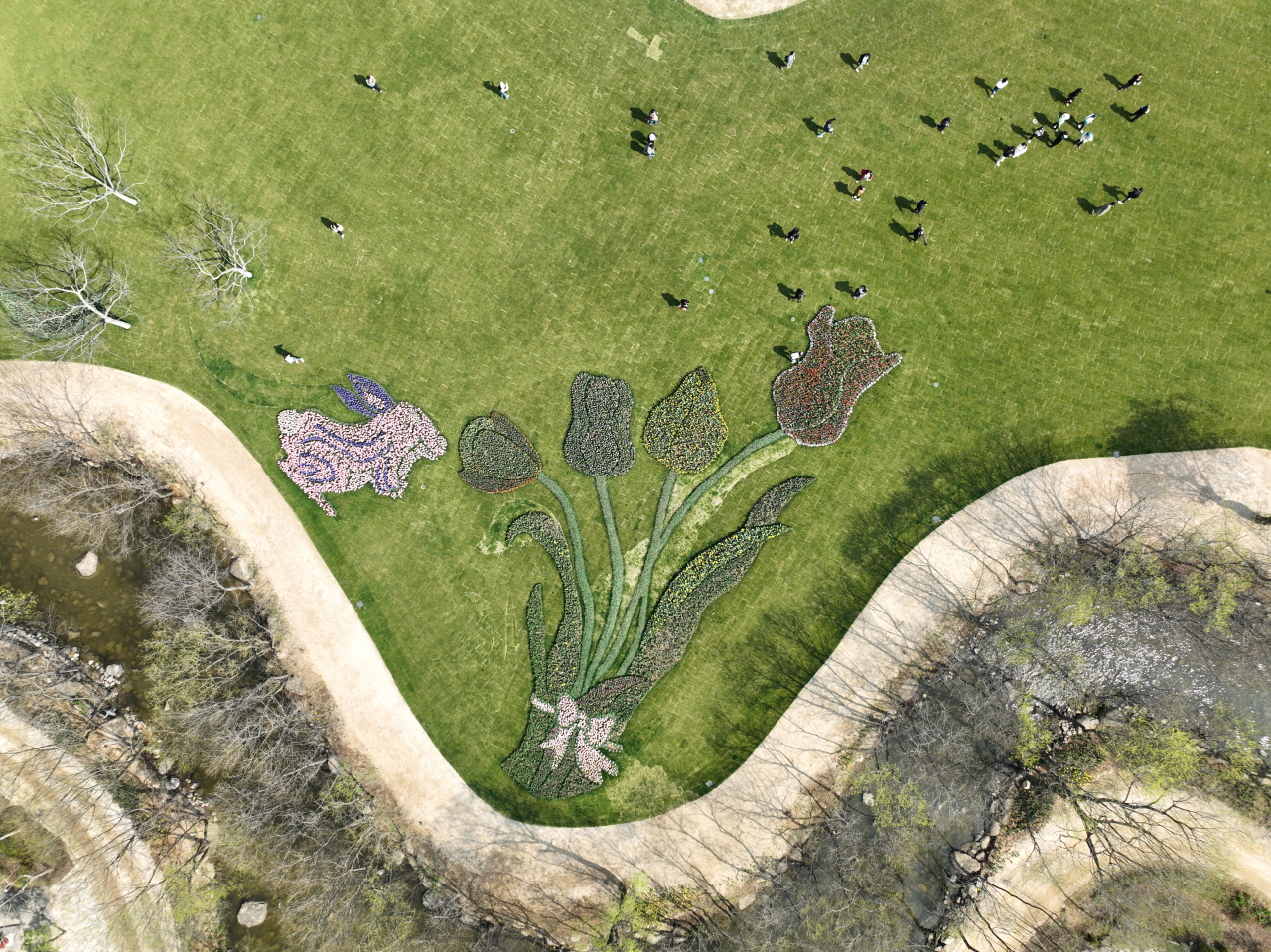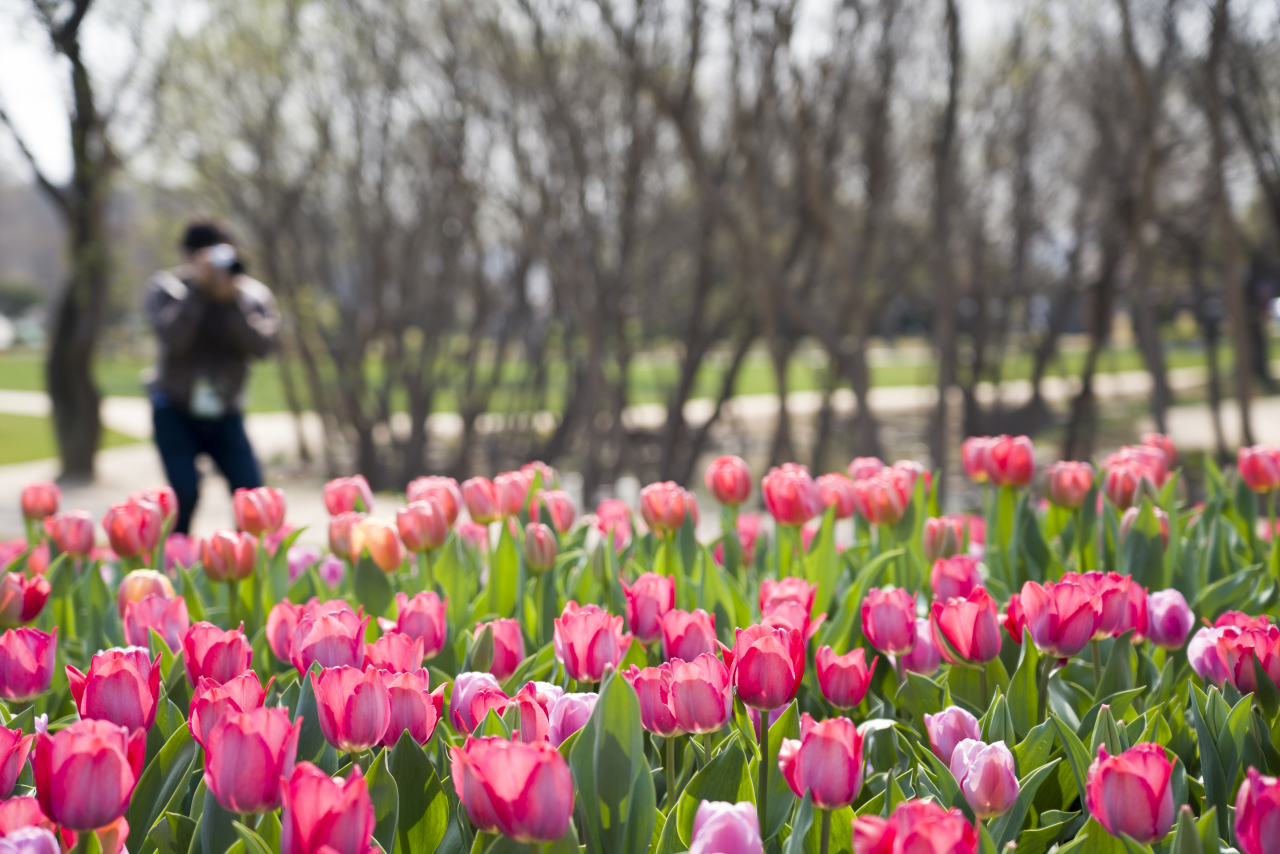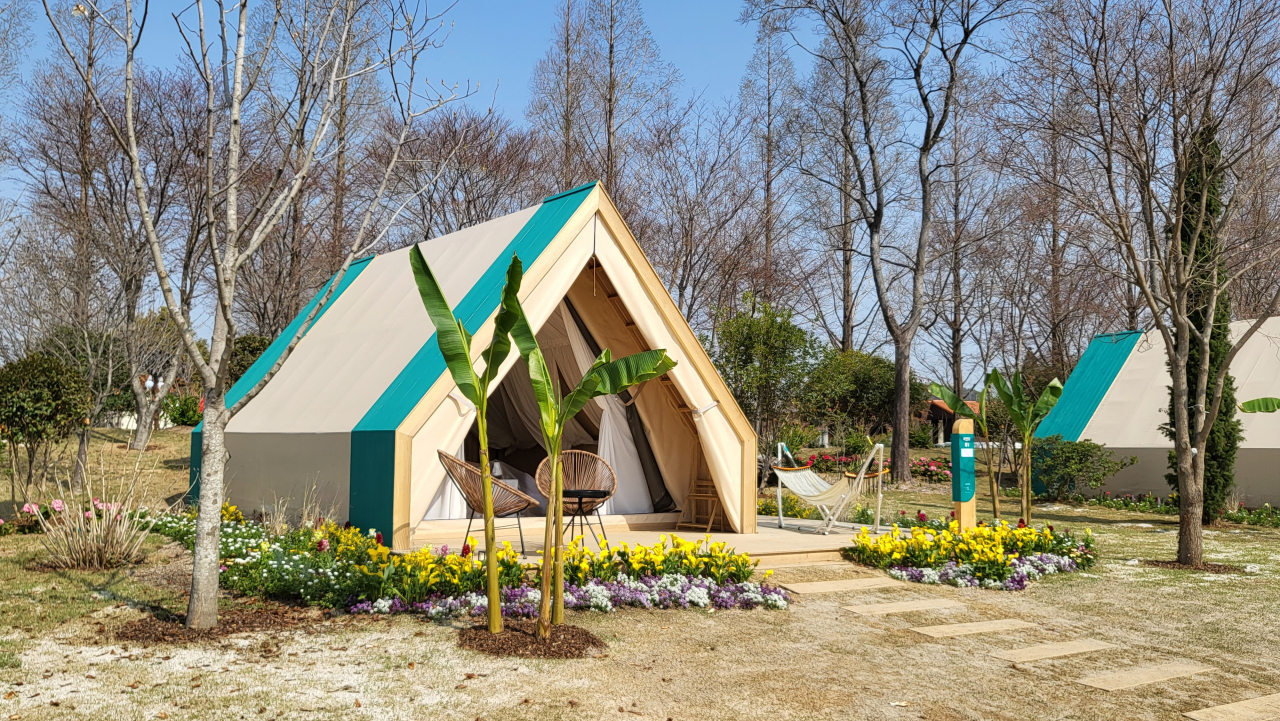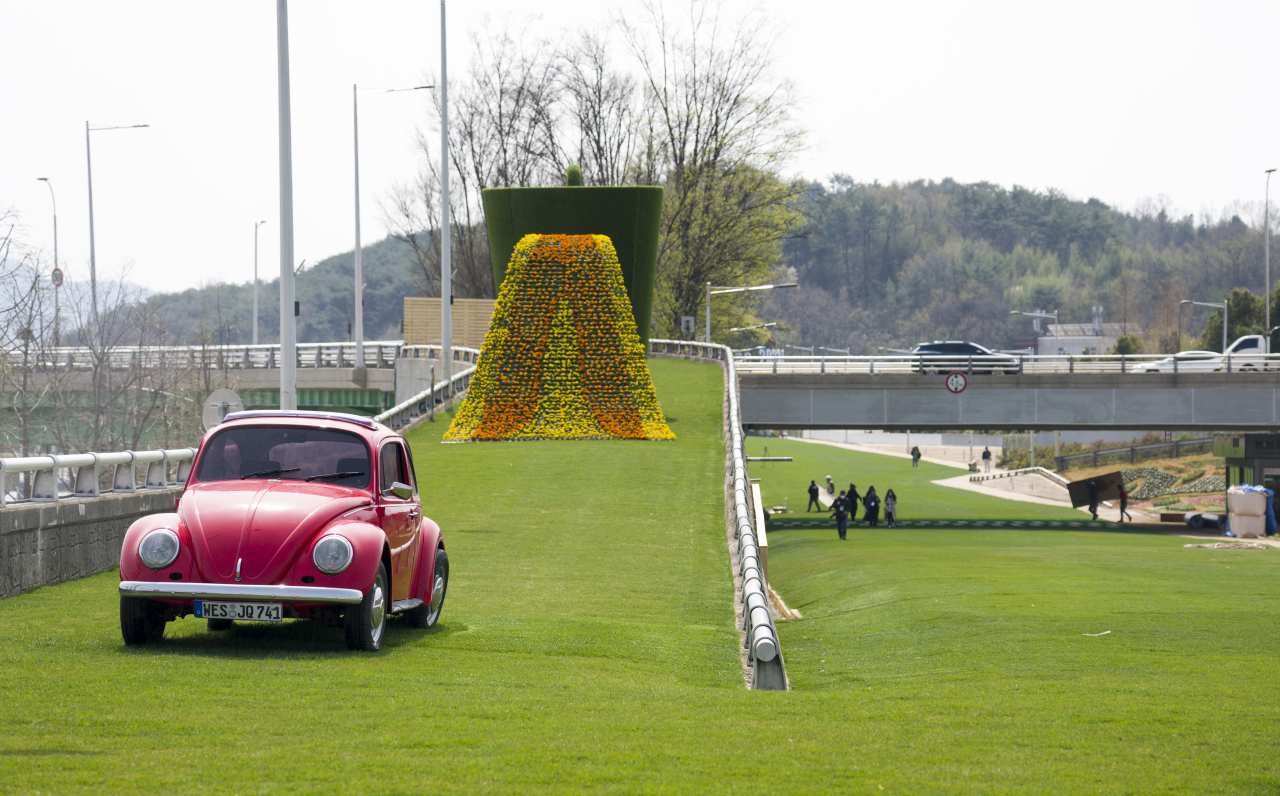 |
Partial aerial view of the Suncheonman National Garden (Joint Press Corps) |
"When the world wearies and society fails to satisfy, there is always the garden."
A quote from Minnie Aumonier, a 19th-century poet, still seems valid today, as can be seen at the Suncheon International Garden Expo, which opens Friday evening.
With the pandemic finally nearing its end, the Suncheonman International Garden Expo, which runs through Oct. 31, aims to attract 8 million visitors.
Launched in 2013, the initial plan of the exposition was to preserve the Suncheon Bay wetlands with the establishment of an eco-belt stretching across about 116 hectares.
This year, the city's objective has expanded to include the urban center as its gardens, covering a total 545 hectares. The future plan is to ultimately design Suncheon into a full-scale ecological garden city.
At the expo's press event on Monday, Suncheon Mayor Roh Kwan-kyu, also the chair of the organizing committee, expressed his gratitude to neighboring local governments for their support, while requesting that visitors come with an open mind.
"Garden culture is a value shared by the whole world for centuries," Roh said. "Visitors can be disappointed when they come expecting luxury hotels and top-notch facilities in the city. But those who come prepared to appreciate a city's dream to become a global ecological capital, I can assure them they can get much from the experiences at the exposition."
The organizing committee announced that this year's expo will carry some 100 types of flowers and 384 plant species. Lupins and peonies which typically bloom from May to June are already on full display, bursting in their diverse colors.
Also noticeable is a 600-year-old hackberry tree donated by a landscaping designer, which had lived in a bedrock area of Jeju Island. Tall poplar trees neatly line the garden's walking trails.
Ten new spaces have been added to this year's expo, which include the Ocheon Green Square, a reservoir garden model, the Green Island, an asphalt road-turned-garden and Shilangae, a lodging area within the garden.
 |
Tulips are in bloom at the Suncheonman International Garden Expo, Tuesday. (Joint Press Corps) |
Another feature of the expo is the granite soil-covered earthing paths, which add up to 15 kilometers, spanning the city center and gardens. Miniature gardens with designs based on gardening traits of 44 countries are an attraction not to miss.
A new mode of transportation called the Garden Dream Cruise consists of four ferry boats that can carry up to 12 passengers each. The ferries cruise along the 2.5-kilometer waterway from Dongcheon, a five-minute walk from Suncheon Station, to the Suncheon National Garden, every 10 minutes during the day.
Car parking spaces are available at the expo, but using public transportation is encouraged by the expo committee.
"We tried to get rid of the unnecessary facilities as much as possible, to make as much green space in the spacious gardens as possible," Choi Deok-lim, Suncheon expo’s organizing committee director, told The Korea Herald. "Once visitors enter the exposition, there are no stairs. This is the beginning of the ecological city experience."
Throughout the expo period, visitors can participate in wellness programs such as yoga and meditation, take part in pet-friendly monthly festivals and view various performances.
 |
Shilangae, where visitors can stay overnight (Kim Hae-yeon/The Korea Herald) |
 |
A road-turned-garden, the Green Island, at the Suncheonman International Garden Expo (Joint Press Corps) |
To make the event accessible to the wider public, strollers, wheelchairs, backup batteries and running shoes can also be borrowed for free at rental shops at the east, west and south gates.
Popular artists including celebrated soprano Jo Sumi, K-pop singer Lena Park and Prowdmon will perform on stage during the opening ceremony Friday, at the Ocheon Green Square at 6 p.m. A total of 30,000 visitors are expected to attend the event.
The expo's grand opening begins at 10 a.m. on Saturday, and regular operating hours are from 9 a.m. to 9 p.m. From June to August, the expo will run one hour longer until 10 p.m.
Regular admission costs 15,000 won for adults and 8,000 won for children of ages 7 to 12. A 50 percent discount is offered for Suncheon residents.






![[Today’s K-pop] Blackpink’s Jennie, Lisa invited to Coachella as solo acts](http://res.heraldm.com/phpwas/restmb_idxmake.php?idx=644&simg=/content/image/2024/11/21/20241121050099_0.jpg)
